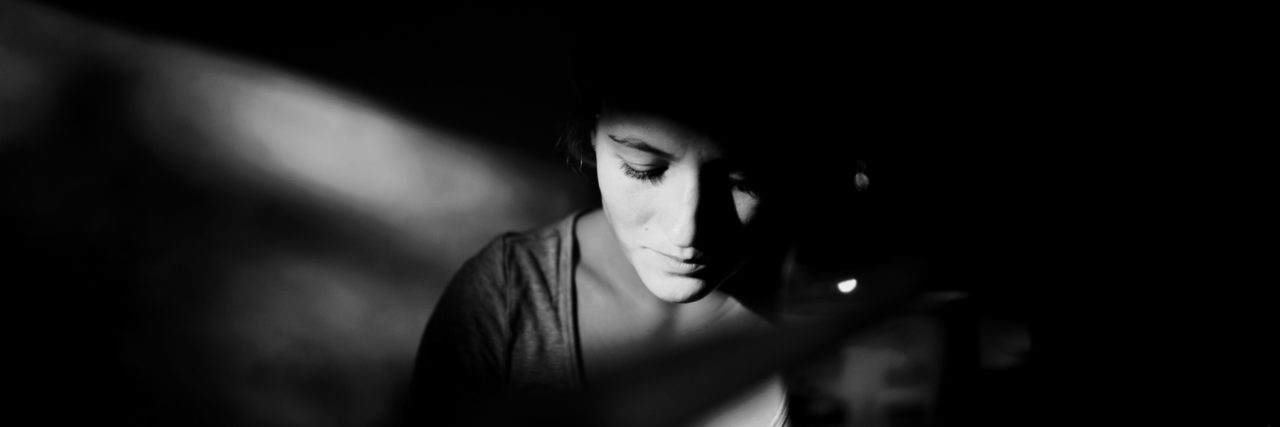Why Accepting a Feeding Tube in Eating Disorder Recovery Meant Choosing Life
Editor’s note: If you live with an eating disorder, the following post could be potentially triggering. You can contact the Crisis Text Line by texting “NEDA” to 741-741.
Two years ago, I was 16 years old, sitting in an inpatient eating disorder treatment facility, being informed that, due to my inability to eat, keep my weight up and keep up with my prescribed hydration plan due to gastrointestinal issues, I would need a nasogastric feeding tube placed. I remember hyperventilating, being plagued with “I’m not sick enough for this” thoughts, getting angry and acting so uncharacteristic of myself. I was ultimately given an ultimatum by one of my favorite mental health counselors on the unit: accept the feeding tube or let the eating disorder kill me.
Eventually, I accepted the tube. Sometimes, I have found acceptance is the easiest option, even though our eating disorders might scream at us to rebel. I did not rebel after a while. I realized this was my routine for the time being. Get ready for bed, have the tube placed, allow myself to scream and then fight the eating disorder all over again. Sometimes, I had to force myself to accept it. I had to break it down into life or death, two very complex ideas that seemed to sober me enough to be able to choose life.
Feeding tubes are highly feared among some individuals in eating disorder recovery. We are sometimes taught not to need through our eating disorders. Feeding tubes show us that we do need. If we are not able to listen to our intuitive selves and realize that we need food to live, there are people that will hold that hope for us, even if it involves a feeding tube, and that, for me, was a terrifying thought.
In my experience, feeding tubes were either highly feared in treatment or almost idolized. Many people with eating disorders do not feel they can recover until they first get “sick enough.” I’d like to challenge that belief. What if we were able to simply break down eating disorder recovery into life or death? What if we were able to fight for ourselves instead of for the eating disorder? What keeps us choosing the eating disorder time and time again? These answers are highly individualistic.
What is the success in refusal?
I got to a point in my recovery where I was able to say “no” to anorexia, I was able to find the will to fight back against the eating disorder versus against my body. It is a scary thought to think that our bodies know more than we do. When you are sitting in a hospital bed with a tube down your nose, it is easy to get stuck in the thoughts that tell us we are not worthy of anything different, and fighting back became more of a chore than a necessity.
I have always struggled with the thought that I should be in control of my own body — that this is my life and these are my choices. When the choice to live was made for me, I felt like I needed to prove to the world that I still did not need the foundation of life: food. I hated the cliche sayings. I hated when people told me that I needed to eat, that food was medicine, that I didn’t have a choice. The scary truth is: we always have a choice. I challenge you to fight back, to stop resisting. I challenge you to break down recovery into life and death. It is truly as simple (and as complicated) as that.
Choose life, even when the alternatives seem tempting. You are not alone. You are needed here. Choose to stay.
If you or someone you know is struggling with an eating disorder, you can call the National Eating Disorders Association Helpline at 1-800-931-2237.
We want to hear your story. Become a Mighty contributor here.
Unsplash photo via Louis Blythe

